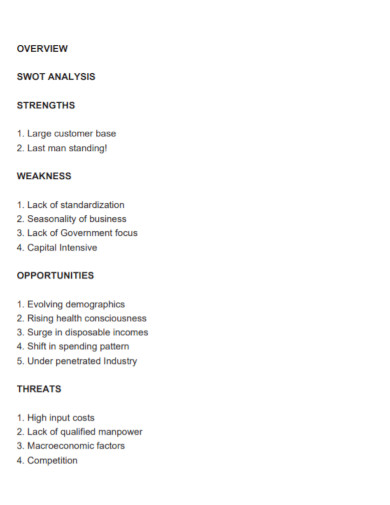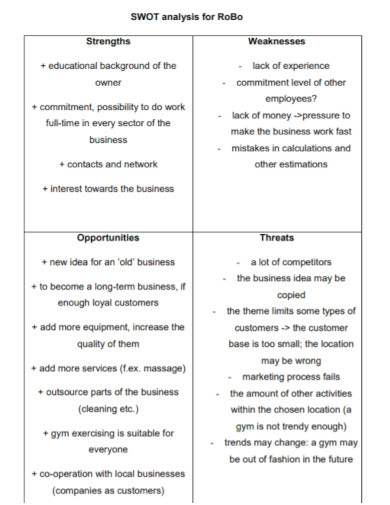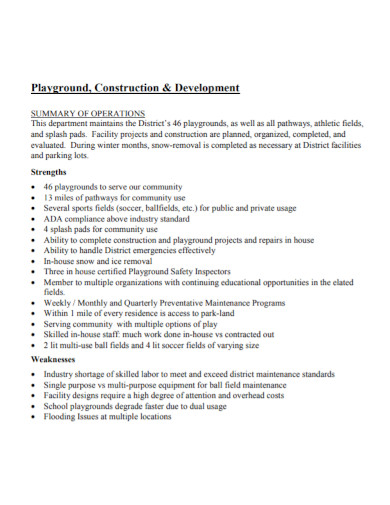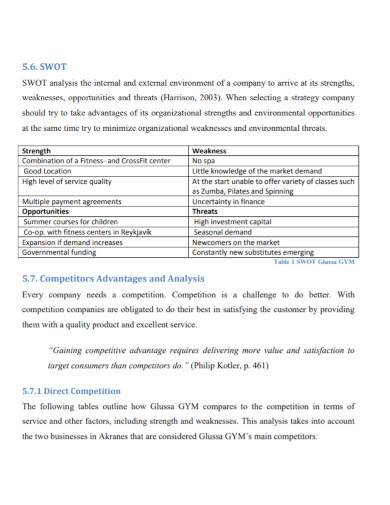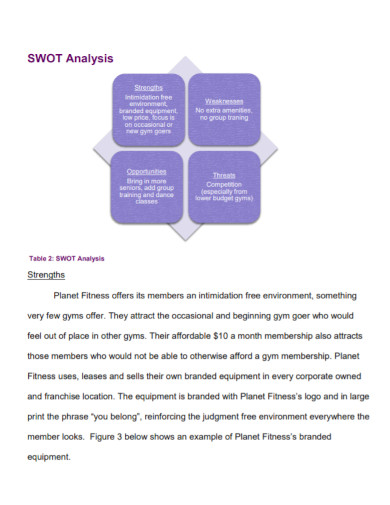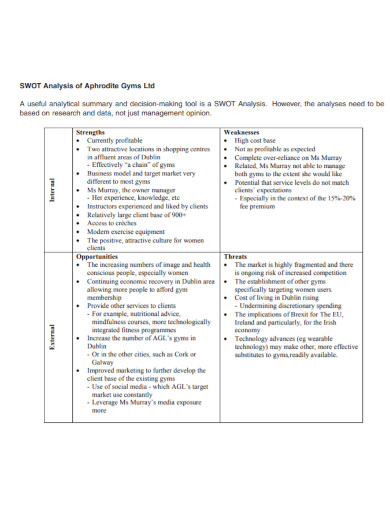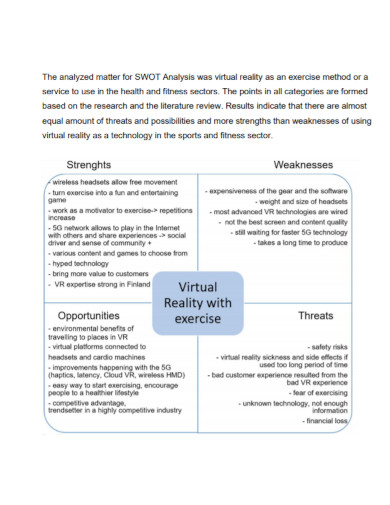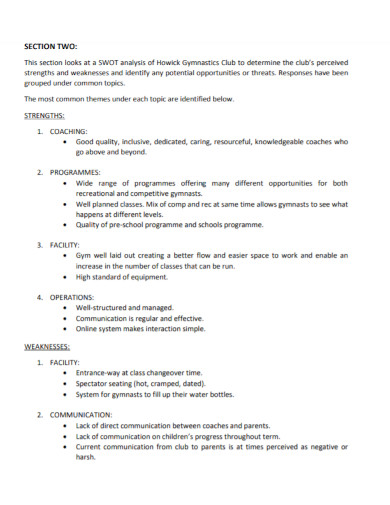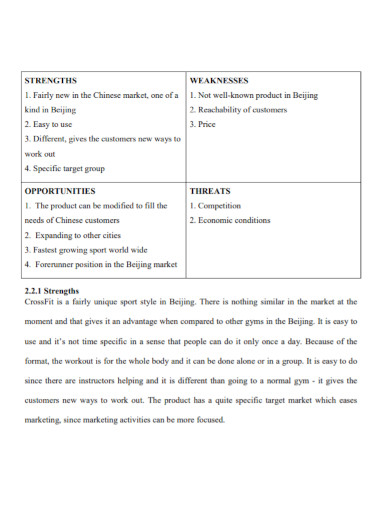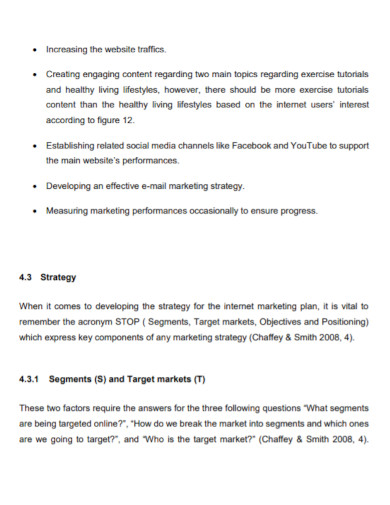11+ Gym SWOT Analysis Examples to Download
Most of the gym clients include people who love to show off their summer body and the ones who put their fitness first. As long as there are people like that, rest assured you will have customers walking into your door looking for personal trainers. Despite that, there are still factors that can affect your line of work. Whether your business is doing well or going a little slow, you will still have to take a step back and conduct a business analysis. Learn how to grow and sustain your business by running a gym SWOT analysis.
11+ Gym SWOT Analysis Examples
1. Gym SWOT Analysis Template
2. Gym Fitness & Slimming SWOT Analysis
3. Sports Gym SWOT Analysis
4. Advance Gym SWOT Analysis
5. Gym SWOT Analysis Template
6. Gym SWOT Analysis Business
7. Citizens Gym SWOT Analysis
8. Gym Management SWOT Analysis
9. Gym Exercise SWOT Analysis
10. Gymnastics Club SWOT Analysis
11. Gym SWOT Analysis Format
12. Marketing Gym SWOT Analysis
What Is a Gym SWOT analysis?
A gym SWOT analysis is a necessary framework for every business and organization. It includes procedures that help determine the strengths, weaknesses, opportunities, and threats to your business. Doing this would lead you to discover the potential problems you could face and help you develop a strategy as a response. In addition, it will identify the areas that need your utmost attention.
How to Conduct a Gym SWOT Analysis
If you’re planning to devise a business plan or a strategic plan, first, you need to conduct a SWOT analysis. The information you can gather from employing this activity will serve as a fundamental detail for all the plans that would come after it. To ensure the efficacy of your analysis, follow the steps below.
1. Uncover Your Strengths
Without a strong business, you can’t continue training and helping your loyal clients. To know what areas of business your gym is performing well, you can hand out evaluation surveys to your customers. The results of this will help you discover where to focus your efforts and resources in building your business.
2. Determine Your Weaknesses
Businesses often have areas where they are underperforming and can’t satisfy the demands of customers. Although, these weaknesses may be unapparent to the employers and employees alike. The best way to gauge your weaknesses is by asking the people who have first-hand experience of your services. You can do this by letting your patrons answer a feedback survey.
3. Discover Business Opportunities
If you’re looking for a way to expand your business, you can start by conducting market research. Your findings can help you identify where to look for business opportunities. The next thing to do is establish connections with other careermen who can be potential business associates. Once you have your prospective clients, you can start composing business proposals to negotiate partnerships or sponsorships.
4. Analyze Threats
Running a qualitative risk analysis will help you evaluate the threats and obstacles that may negatively affect your business. Tracking down risks early on will help you determine the items that need your attention when you devise your action plan. This procedure will help you to minimize the possible damage that the business threats might cause.
FAQs
What are the possible weaknesses of a gym?
Various gym clubs may report different weaknesses depending on their location, quality of services, and customer service strategy. The most common examples of personal complaints by customers are a lack of staff, maintenance issues, and outdated types of equipment. In addition, a poor marketing strategy can also be a weakness for a gym business.
What are some exercises that can help you analyze your SWOT?
Conducting surveys are one of the most effective ways to discover your strengths and weaknesses. Although there are other ways to evaluate your service, These methods include doing a competitor SWOT analysis and studying your price list. However, you can use whatever means you want to implement, as long as it’s cost-effective.
What should you do after running a SWOT analysis?
After conducting your SWOT analysis, you should study and process the findings that you gained. Now that you have a complete grasp of your business situation, it is time to devise business goals and strategies that can promote growth to the health of your business venture. You can also generate a roadmap detailing your business plans.
Being in the industry and running a business involves a lot of complex processes. You need to continuously devise strategies and also write an endless amount of business letters. If you are not a businessman by heart, these things can get overwhelming. Despite that, doing gym business is like building muscles. It is a gradual process. Take a step forward today by conducting a gym SWOT analysis.




